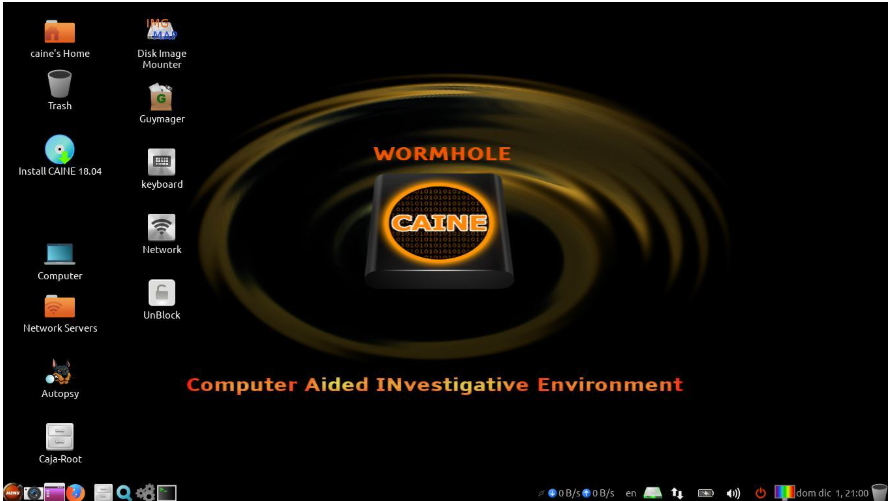Exploring Forensic Operating Systems: Essential Tools for Digital Investigations
In today's digital age, cybercrimes and data breaches are on the rise, making digital forensics an essential field. Forensic operating systems (OS) are specialized environments equipped with powerful tools to assist investigators in analyzing digital evidence while preserving data integrity. These systems can uncover hidden files, recover deleted data, analyze network activity, and much more.
Let’s dive into what forensic operating systems are, their key features, and explore a list of some of the most popular forensic OS available today.
What Are Forensic Operating Systems?
Forensic operating systems are specially designed operating systems used for digital investigations. Unlike standard operating systems, they are tailored to ensure the integrity of evidence and prevent any accidental modifications to the data being examined. Most forensic OS are Linux-based and come with pre-installed tools for a variety of forensic tasks, such as disk imaging, memory analysis, and network traffic monitoring.
Many of these systems can boot from a USB drive or a DVD, which is particularly useful for examining devices without altering their internal storage.
Why Use a Forensic Operating System?
Forensic operating systems streamline the investigative process by offering all necessary tools in one place. They reduce the risk of altering evidence, support a variety of file systems, and make it easy to recover lost or deleted data. These systems are invaluable in scenarios such as:
Investigating cybercrimes like hacking or data theft.
Recovering important data from corrupted or formatted drives.
Analyzing network traffic for suspicious activity.
Examining memory dumps to identify malware behavior.
Here is a list of some of the most widely used forensic operating systems, each with its unique strengths:
1. Kali Linux
Originally designed for penetration testing but includes a "Forensic Mode" for investigations.
Tools: Autopsy, Wireshark, Volatility, Sleuth Kit, and more.
Download from official website
2. CAINE (Computer-Aided Investigative Environment)
A user-friendly forensic OS with a wide range of built-in tools.
Tools: Autopsy, FTK Imager, Scalpel, and more.
Download from the official website
3. DEFT (Digital Evidence & Forensic Toolkit)
Ubuntu-based OS optimized for digital forensics.
Tools: Guymager, Dhash, Xplico, and more.
Download from official website
4. SIFT (SANS Investigative Forensic Toolkit)
Developed by the SANS Institute and designed for incident response and forensic analysis.
Tools: Log2Timeline, Sleuth Kit, Volatility, and more.
Download from official website
5. Paladin Forensic Suite
Based on Ubuntu and packed with over 100 forensic tools.
Tools: Disk imaging utilities, memory forensics tools, and data recovery programs.
Download from the official website
6. Parrot Security OS (Forensics Edition)
A lightweight Debian-based distribution offering a "Forensics Mode."
Tools: Cryptographic analysis, data recovery tools, and more.
Download from the official website
7. Tails (The Amnesic Incognito Live System)
Focused on privacy and anonymity but includes useful forensic utilities.
Tools: Metadata anonymization, secure deletion utilities, and more.
Download from the official website
8. Windows-Based Environments
While most forensic OS are Linux-based, some tools are tailored for Windows:
EnCase Forensic Imager
X-Ways Forensics
FTK (Forensic Toolkit) Imager
9. BlackArch
Arch Linux-based distribution designed for security and forensic tasks.
- Tools: Over 2800 tools, including utilities for reverse engineering, cryptography, and malware analysis.
- Download from the official website
Conclusion
Forensic operating systems are indispensable for modern digital investigations. Whether you’re a seasoned investigator or just starting, choosing the right OS can make a significant difference in your work. From versatile options like Kali Linux and CAINE to privacy-focused Tails, there’s a forensic OS suited for every scenario.
By leveraging these specialized systems, investigators can ensure thorough, efficient, and legally sound investigations. As technology evolves, so will these powerful tools, making digital forensics an ever-advancing field.









Comments
Post a Comment